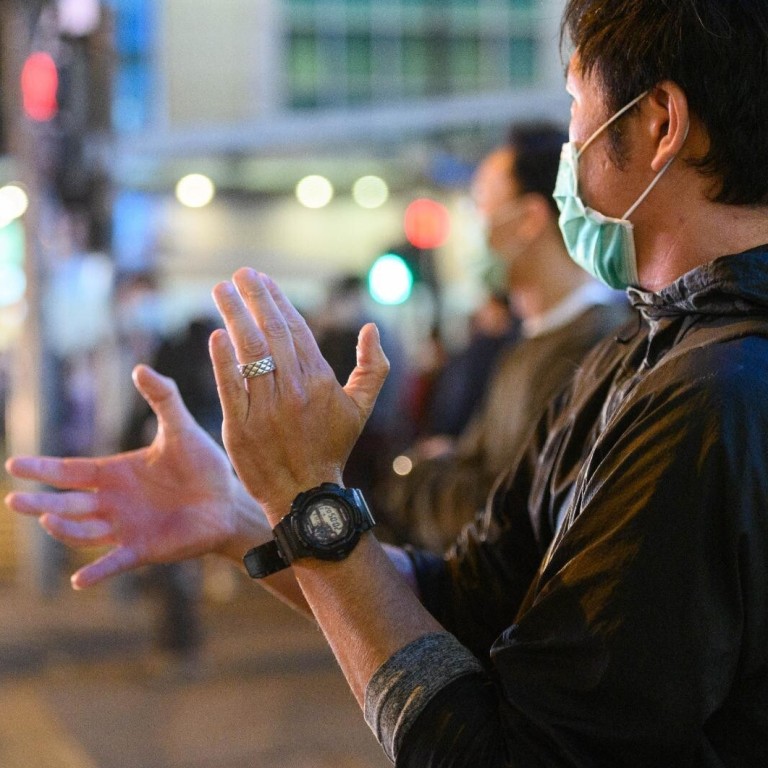
Health care workers deserve our steadfast support, not just during a coronavirus pandemic
- It is an irony that Hong Kong is now stopping to clap for the health care workers who were harassed during last year’s protests
- Attitudes around the world towards medics are not always appreciative: expect attitudes to change when these workers start demanding compensation for Covid-19 oversight
There has been an international outpouring of public tributes to health care workers who have made selfless sacrifices during the Covid-19 pandemic. So why is Tedros Adhanom Ghebreyesus, director general of the World Health Organisation, choosing this moment to tweet: “Health care is #NotATarget. … Attacks on health care are attacks on humanity …”?
The uncomfortable truth is that in many countries, a contradictory and conflicted relationship exists with health care workers: they are applauded when it is convenient, but marginalised, even persecuted, when it is not.
A group composed of three United Nations special rapporteurs (for health, freedom of assembly and privacy) and the vice-chair of the UN Working Group on Arbitrary Detention made public their concern that health care workers in Hong Kong had been subjected to harassment, intimidation, unlawful arrest and detention – their hands zip-tied behind their backs – despite acting in the highest traditions of providing care for the injured with impartiality.
Equally worryingly, they described the Hong Kong authorities’ wider circumscription of the safe space in health care during the protest movement – reports of breaches of medical privacy, for example, mean that access to medical treatment is effectively being restricted as a consequence of political expression.
Shockingly – since it would arguably be a war crime if committed in an international conflict – law enforcement agencies were reported to have abused the symbol of humanitarianism by using ambulances to transport personnel and equipment including weapons. Then there were the police patrols around hospitals that were clearly intended to intimidate people.
What one public doctor thinks about the Hong Kong medics’ strike
As a modern city, Hong Kong has much in common with London and New York. The common theme of inadequate protection for health care workers, literally and figuratively, when confronting danger – whether political or pandemic – should be a concern to all.
In Britain and the United States, credible accounts of doctors and nurses being warned not to discuss shortages of personal protective equipment are similarly disquieting.
Moreover, Hong Kong medical workers are not alone in unionising to assert their concerns: New York State’s largest nursing union has filed lawsuits against the state health department for failure to protect their health and safety. At NYU Langone Medical Centre, residents have reportedly petitioned for hazard pay and insurance.
Hong Kong’s ‘dirty teams’: frontline medical staff share stories, fears
The British government has announced a payout of £60,000 (HK$580,000) to families of health care workers who died of coronavirus. It can be anticipated that health care personnel in other parts of the world will take collective action where administrative inadequacies have exposed them to disease and danger.
Stand by to see how government attitudes towards medical workers change worldwide when actions for damages and death in service ensue – and be prepared for the euphony of approval to turn into a cacophony of disapproval.
The altruism of health care professionals is a necessary humanitarian good and the benefit of the public is their first concern. They are neutral and impartial in the delivery of care. When these motives align with the aims and needs of governments, tributes flow.
But when the opinions and actions of healers are inopportune, critical, or seen as obstructive by the authorities, then, to paraphrase the Hippocratic Oath, the opposite of tributes will be their lot.
The price of humanitarianism and health care advocacy is protection and transparency, even if politically inexpedient. As some health care workers say in Hong Kong, “You can’t clap for carers when your hands are zip-tied.”
Darren Mann is a surgeon in Hong Kong
Help us understand what you are interested in so that we can improve SCMP and provide a better experience for you. We would like to invite you to take this five-minute survey on how you engage with SCMP and the news.
